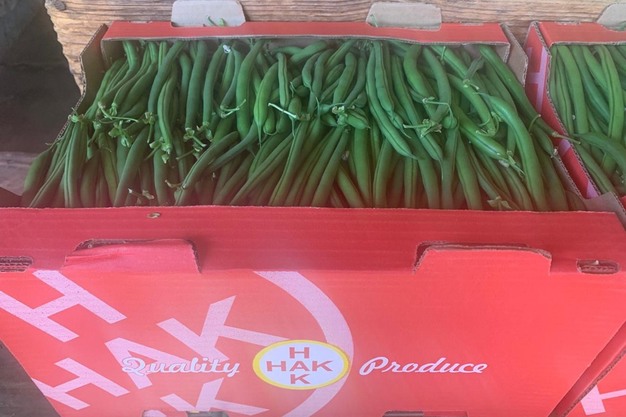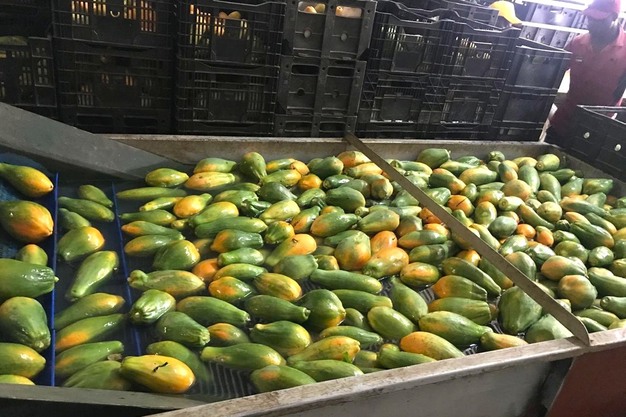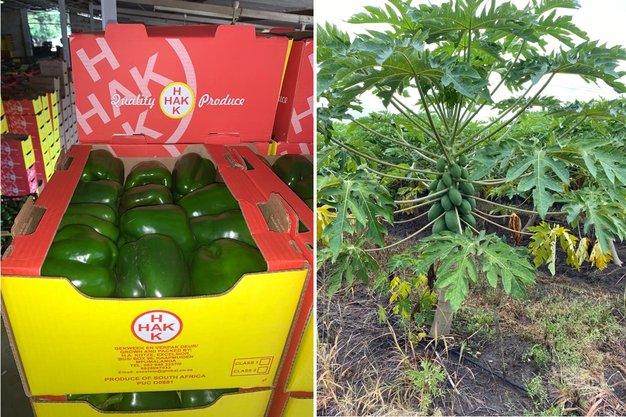Near the small town of Kaapmuiden in Mpumalanga province, the end of the Lowveld vegetable season is fast approaching. During winter, HAK Boerdery grows cash crops like aubergines, green sweet peppers, green beans, and cabbage for the municipal markets of Gauteng.
 © HAK BoerderyHAK Boerdery was established in 1935
© HAK BoerderyHAK Boerdery was established in 1935
Temperatures are heating up, and along with it, they hope, people's papaya appetite. It is, says Fielies Kotzé of HAK Boerdery, the ultimate breakfast fruit and the basis of fruit salads. HAK Boerdery is one of the oldest papaya producers on the market, celebrating ninety years in 2025.
Their entire papaya crop is sent to the Johannesburg and Tshwane municipal markets. "Papaya demand is already looking up after the warmer weather of the past three weeks," he notes. "The price had been under a bit of pressure. Papaya prices are very volatile because a papaya is exceedingly sensitive to weather conditions and temperature fluctuations. That makes continuity of supply tricky."
 © HAK BoerderyPapayas deserve recognition as a superfood, Kotzé believes
© HAK BoerderyPapayas deserve recognition as a superfood, Kotzé believes
Papayas were one of the few fruits badly affected by the lockdown, with the forced closure of restaurants and hotels, and many left the industry, he observes. The demand has steadily regained ground, and there are new entrants to the industry, often vegetable farmers in subtropical parts looking for a more perennial crop.
During summer, papaya blocks that have become too tall to harvest without ladders or in other ways senescent are removed to make way for the following season's vegetable crop, while young papaya fields are established on former vegetable lands.
Papaya has all the makings of a super food, but there is no papaya growers' association to extol its merits and run promotional campaigns. By right, papayas ought to be eaten in every home, especially by people suffering from stomach ulcers, for which there is nothing more healing, Kotze says. © HAK Boerdery
© HAK Boerdery  For more information:
For more information:
Fielies Kotzé
HAK Boerdery
Tel: +27 82 804 7933
Email: [email protected]
